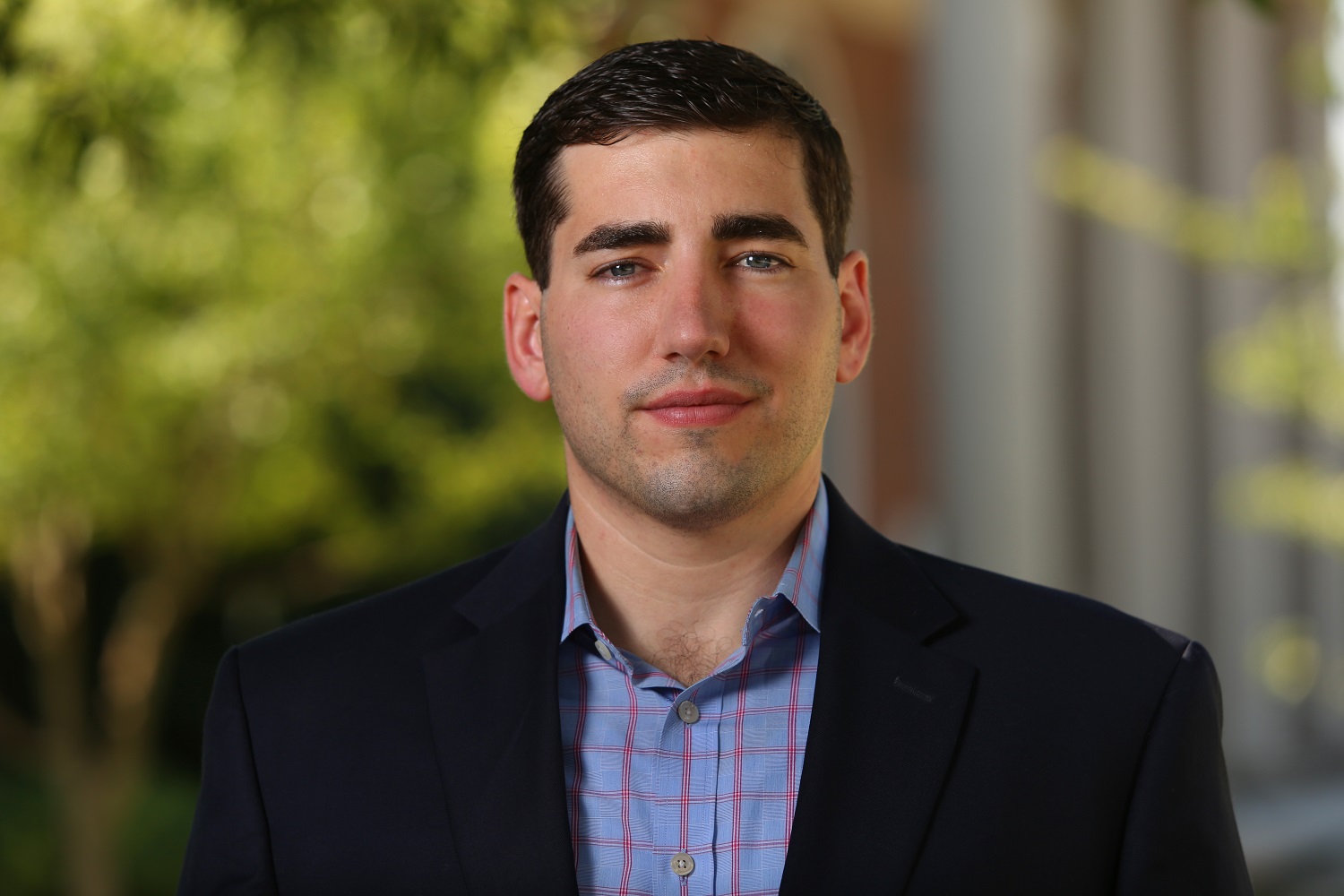OBU Announces Launch of Center for Faith and Public Life, Arbo to Lead
October 14, 2015
OBU is pleased to announce the establishment of the Center for Faith and Public Life (CFPL) and the appointment of Dr. Matthew Arbo, assistant professor of theological studies, as its director.
The CFPL will encourage integration of faith and learning, foster vocational discernment and inspire a hopeful and charitable Christian public witness to the gospel of Jesus Christ. The university anticipates launch of the CFPL in fall 2016.
The Center for Faith and Public Life will provide enrichment and support for the OBU community on matters concerning faith and vocation by sponsoring a range initiatives such as conferences, public lectures, themed panels, student and faculty workshops, book groups, funded research and writing projects for faculty, student internships, and other vocational discernment initiatives. The Center will also strive to connect the university community with others across the state and region who share common aims with the university, forging strategic partnerships for scholarly and pedagogical collaboration. In all its endeavors, the Center will aim to deepen and enrich the life of the university community.
“The realization of the Center is a result of many months and years of planning and consideration, leading us to the point where we are ready to launch this initiative,” said Dr. Stan Norman, provost and executive vice president for campus life. “Dr. Arbo’s vision and leadership during the planning process have proven invaluable. I am confident that he will lead the Center in making a profound positive impact on our faculty and students, as well as the campus at large.”
“Serving as director means a great deal to me personally,” Arbo said. “I want to hear from those more experienced than I about how to refine my craft, about new lines of thought, about how others across a wide range of disciplines understand Christian pedagogy.”
The center’s activities will be guided by four key objectives. First, the center will seek to transform understanding of discipleship by stressing the integration of faith and learning. Next, it will seek to renew social institutions by chartering initiatives within the university that directly impact social life. Third, it will seek to unite Christians within the university and wider metro area. Lastly, it will seek to enliven the hearts and imaginations of the OBU community by furnishing venues for deeper reflection on vocational practice in an increasingly complex world.
“The center will offer a venue within the university for reflection and deliberation on Christian pedagogy,” Arbo said. “It will also sponsor events to foster broader reflection of what it means to have a vocation and to serve within a civically enriching institution like a university.”
The center will seek to bolster within the university a richer understanding of vocation as an expressive application of discipleship, to see all of life, every place and moment, as part of one’s ongoing journey with Christ Jesus.
“The center is important because it advances the mission of the university,” Arbo said. “More specifically, it is important because faculty deserve support in carrying out their vocations as teachers and scholars. This center is not externally oriented, but internally oriented. It seeks the flourishing of the university.”
According to Arbo, other similar centers devoted to pedagogical reflection and faith integration exist throughout North America, however, the center being established on Bison Hill will go about its mission in a way unique to OBU and to its mission. The center is a specific realization of some long-abiding aspirations and a manifestation of the university's commitment to teaching and to intellectual exploration.
“If Christian discipleship assumes dwelling in two cities, one heavenly and one earthly, then we do not have a choice of whether we will live in public, but how we will so live,” he said. “The center will sponsor initiatives for the university community to consider together how to live faithfully and charitably towards our neighbor.”
